Lebanese Judge Charges Dozens Over Fatal Beirut Clashes
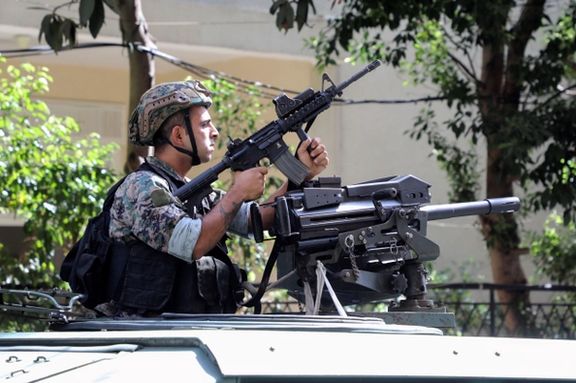
A Lebanese judge on Monday charged 68 people including 18 detainees with murder and incitement to sectarian strife over fatal clashes this month in Beirut.

A Lebanese judge on Monday charged 68 people including 18 detainees with murder and incitement to sectarian strife over fatal clashes this month in Beirut.
Seven followers of Lebanon's Shiite Iran-backed Hezbollah group and its ally, the Amal Movement, were killed on Oct. 14 in the worst street violence in Beirut in over a decade.
The gunfire began as protesters assembled for a demonstration called for by Hezbollah and Amal against Judge Tarek Bitar, who is leading an investigation into an explosion at Beirut port that killed over 200 people on Aug. 4 last year.
Monday's charges were filed by Judge Fadi Akiki, a government representative at the military court. They also include charges of attempted murder, possession of unlicensed weapons and destruction of public and private property.
The case was referred to an investigative judge.
Hezbollah has accused the Christian Lebanese Forces party of targeting demonstrators with sniper fire.
The party's leader, Samir Geagea, has denied the allegations and said residents of the Christian-majority Ain al-Remmaneh area, where the violence took place, had acted in self-defense.
In a local television interview last week, Geagea said the trouble began when supporters of the Shi'ite Muslim parties entered the neighborhood and vandalized cars, and that four residents were wounded before a shot was fired.
Footage released later appeared to show at least one person being shot by a soldier.
Report b y Reuters
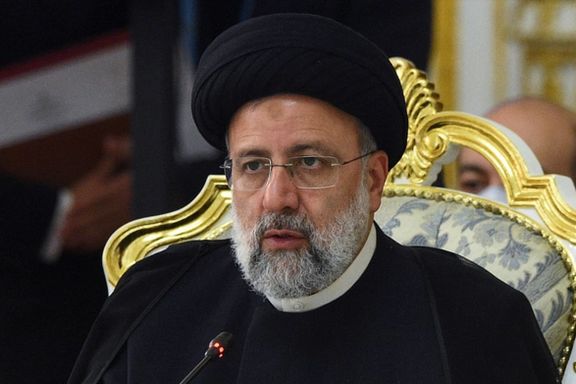
Iran's President Ebrahim Raisi has made enough gaffes in just two months to be advised by a newspaper to seriously consider prevention and damage control.
The reformist paper Etemad Monday in a commentary headlined ‘To Be Read by President’s Advisers,’ lambasted blunders by President Ebrahim Raisi, suggesting they would destroy his self-confidence.
In the past two months Raisi (Raeesi) has uttered several malapropisms and made other errors in his public appearances and speeches, leading to comparisons with United States presidents Donald Trump, Ronald Reagan and George W Bush, whose gaffes and blunders spawned the term 'Bushism' and several books.
Unlike most Iranian clerics such as the 82-year-old Supreme Leader Ali Khamenei who are confident, eloquent public speakers, the 61-year-old cleric now steering Iran's government is clearly no orator. In fact, he often looks quite uneasy when addressing the public.
Raisi made two awkward gaffes last week. In a speech in Ardabil when speaking about the region's cultural heritage, he referred to the Safavid-era Shia scholar, Ahmad ibn Muhammad Ardabili, by two of his titles Mohaghegh (researcher) and Mughaddas (sanctified) as if Mohaghegh Aradabili and Mughaddas Ardabili were two separate characters.
"In our time we neither understood Mohaghegh Aradabili, nor Mughaddas Ardabili," Raisi said.
As a senior cleric who has studied Shia theology and jurisprudence in seminaries for many years this came as a surprise to many even his supporters who are hard at work on social media to whitewash the mistake.
In a speech at the International Islamic Unity Conference, also last week, Raisi referred to the Turkish-born Sunni Muslim scholar Mohammed Said Ramadan al-Bouti − killed in the Syrian war in 2013 and known as "Shaykh of the Levant" − as Shaykh Touti. This was particularly amusing for Iranian social-media users given 'touti' translates as 'parrot'.
Critics have pointed out that Raisi is even not comfortable reading prepared speeches. He read his address to the Shanghai Cooperation Organization (SCO) summit in Tajikistan in September from a prepared text but repeatedly failed to follow the words and mispronounced them so in his speech "belt road" turned into "belt and road" – referring to China’s massive international infrastructural plan – mixed with some other mispronounced words when speaking about a transit project.
The Etemad commentary wrote that Raisi's gaffs would embarrass Iran and that the presidential staff needed to follow the example of White House chief of staff Michael Deaver and presidential adviser David Gergen during the Reagan presidency.
"Gaffes lead to more gaffes,” Etemad observed. “A politician will gradually lose his self-confidence if he makes repeated gaffes and will make even more.” The paper drew a comparison with a volleyball game going badly when the coach "should take a time out" and stop further losses by talking to players.

An official has said that Iran has now the lowest birth rate in the Middle East after experiencing the fastest decline in births during the past three decades.
Saleh Ghasemi, head of the Center for Strategic Research on Population told a local news agency that the current birth rate is 1.6 for each woman at the age of fertility. He added that in mid-1980s Iran had a 6.5 birth rate, one the highest in the world, but it has been declining since.
Ghasemi put Iran’s population at more than 85 million, although some believe that this figure includes a few million Iranians who have left the country but are still counted as residents. He added that the population growth rate is currently 0.6 percent but is expected to decline to zero in the next 10-15 years.
Iran’s declining rate of population growth has been a hot political topic in the country, where its Supreme Leader Ali Khamenei and senior clerics in the religious political system have been calling for policies to boost population.
Ghasemi said that the biggest decline in births took place between 2015-2020, when there were 550,000 fewer births annually. He went on to say that women born in the 1980s are dropping out of the child-bearing age. This, coupled with change in people’s preferences and lifestyle will continue to reduce births.
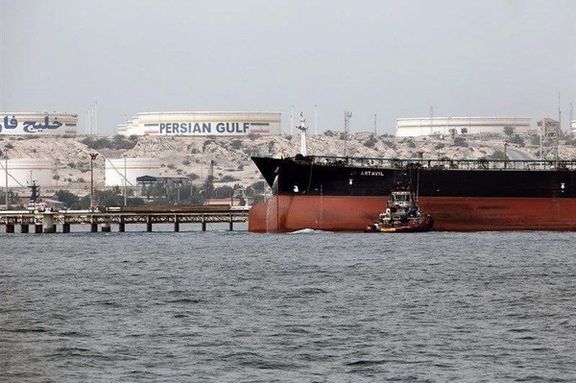
Contradicting trade officials, the IRGC-linked Fars news agency has once again insisted that Iran is selling more than a million barrels p/d of oil to China.
In a report Sunday, Fars accused officials of the Tehran Chamber of Commerce of wrongfully declaring that Iran's crude oil exports to China have dropped to around 1,000 bpd, because they are allegedly opposed to "neutralization of [US] oil sanctions". Fars also accused the chamber of sabotaging Iran's relations with China.
In a tweet Saturday, Chairman of the Tehran Chamber of Commerce Masoud Khansari said Iran's oil exports to China "drastically dropped" in the first seven months of the current Iranian calendar year which began 21 March. According to Khansari in the first seven months of 2021 Iran exported just $11 million of crude oil to China in comparison with $9.5 billion in 2018 before Donald Trump imposed sanctions on Iranian oil in November of that year.
Since then, Khansari said, other countries in the region, presumably Saudi Arabia, which is now exporting more oil to China, have taken Iran’s market sahre. "With the continuation of sanctions, the Iranian economy will lose more [trade] opportunities," he argued.
"Why does an entity such as the Tehran Chamber of Commerce which is fully aware of the [extent of the] Iran, China oil trade try to sabotage the relations between Iran and China in the domestic sphere with such wrong information?" Fars asked in a section of its report under the subhead "Tehran Chamber of Commerce's Conflict of Interest with Expansion of Iran, China Cooperation in Neutralizing Oil Sanctions".
Fars also alleged that reports published by the Tehran Chamber of Commerce on the subject "all of a sudden spread suspiciously in the society by certain news websites".
Fars also argued that data from OPEC, tanker-tracking companies and government reports prove that the total crude and natural gas condensates that Iran exports to China still exceed one million barrels a day.
In fact, observers believe that the oil shipments are not directly going from Iran to Chinese buyers. Middlemen buy the oil and through illicit means sell it to China claiming a different origin for the oil.
China is a diplomatic ally of the Islamic Republic but so far it has avoided openly challenging US sanctions. China might be indeed clandestinely importing hundreds of thousands of barrels of crude a day via third party channels, but Iran gains little from this trade as intermediaries take most of the profits and often deliver goods instead of cash.
Official figures released by China's Customs show no direct oil purchase from Iran in 2021. But in March Bloomberg claimed that details from third-party sources indicated that Iranian oil was often re-branded as purchases from other countries and such exports had even surged.
There have also been reports recently that China is enforcing US sanctions on Iranian shipping. According to some officials, Chinese vessels now avoid Iranian ports and Iranian ships are not allowed into Chinese ports.
The news about China’s compliance with US sanctions might be embarrassing for hardline supporters of Supreme Leader Ali Khamenei who have been trumpeting Iran’s “Looking East” policy. Khamenei promulgated the policy in 2018, saying that Iran should adopt an Eastern orientation of relying on China and Russia for business and commerce in the face of US sanctions.
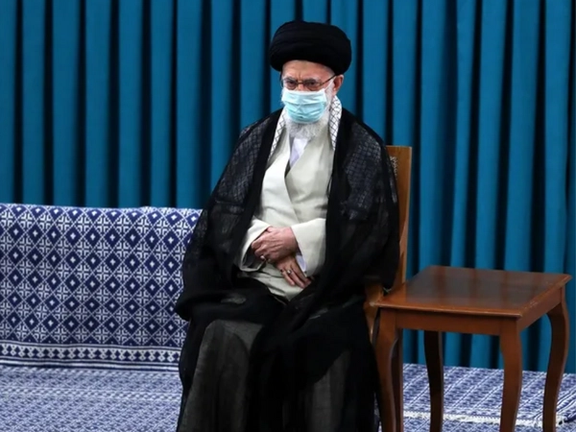
Iran’s Supreme Leader Ali Khamenei in a speech on Sunday did not mention nuclear talks with the West and focused on Islamic unity and anti-American statements.
Khamenei who was speaking on Prophet Mohammed’s birthday to participants at a recent Islamic unity conference sponsored by Tehran, said that the Americans try to divide Sunnis and Shiites by highlighting their differences, while they are in fact against Islam.
He went on to accuse the United States of sawing discord among Muslims and alleged that recent terror attacks in Afghanistan was sponsored by Washington through the Islamic State group. Iran’s anti-Western leader claimed that the US has acknowledged that they are the ones who have created the extremist Islamic group.
Khamenei also argued that Islam is a “collective and not an individual religion”. He said that secular powers try to portray Islam as a religion for the individual, his beliefs and his conscience. They try to present Islam as a religion at the individual level, while it is in fact a religion pursuing social issues and fundamental human problems, he said.
Khamenei also underlined that Palestine is the most important factor for Islamic unity and criticized Arab countries that have established relations with Israel since 2020.
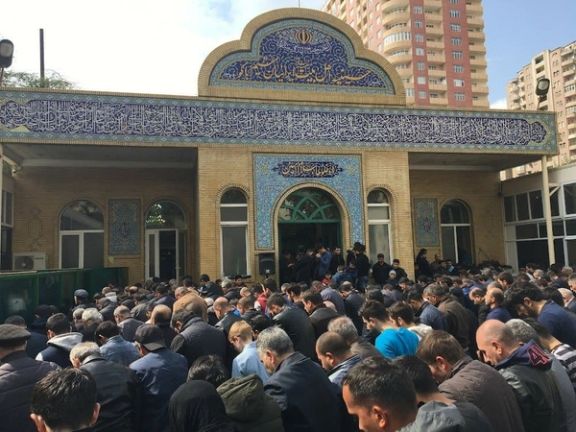
Azerbaijan's government has blocked Shia websites it says "engaged in Iranian and religious propaganda," following weeks of tensions between the two neighbors.
Tensions between Tehran and Baku, pumped up by media outlets, had appeared to ease since a phone-call between foreign ministers Hossein Amir-Abdollahian and Jeyhun Bayramov on October 13 and this week’s release of two Iranian truck drivers arrested on a transit road.
But Azerbaijani media reported Saturday that six websites − Deyerler (Values), Maide (Blessings), Ahlibeyt (Prophet's Household), Ehlibēt (also Prophet's Household), Shia and Islaminsesi (Voice of Islam) − had been blocked. Baku has not made an official announcement.
Deyerler is edited by Ilgar Ibrahimoglu, the previous imam of Baku's main Friday Mosque. The well-known and openly pro-Iranian imam also heads Defense of Freedom of Religion and Conscience, a non-governmental organization.
The website of the Stockholm-based Aznews (ANT) Television, which supports unity between Azerbaijan and the Azeri area of Iran it calls ‘South Azerbaijan,’ reported that Youtube channels carrying Iranian religious programs had also been blocked.
The Aznews website said Iran was breeding “terrorist groups in various countries under the guise of religion and religious sects to further its ideology.”
The relationship between Baku and Tehran has been fraught since last year’s war between Armenia and Azerbaijan, with Tehran uneasy over Azerbaijan’s territorial gains, Baku’s reported military relationship with Israel, and the alleged presence of Sunni militants shipped in from Syria by Turkey. Both Iran and Azerbaijan have recently carried out military maneuvers near the border.
Baku continues to detain four clerics who are members of the Assembly of Clergy of Azerbaijan and who were arrested last month, although it has released Ibrahimoglu, arrested at the same time.
On October 5 the Iranian embassy in Baku said Azerbaijani police had inspected an Iranian mosque in Baku, Iranian Husseiniya, and shut it down. The mosque, which is affiliated to the Iranian embassy, houses the office of Ali-Akbar Ojaghnejad, representative in Azerbaijan of Iranian leader Ali Khamenei.
The Iranian ambassador, Seyed-Abbas Mousavi, later said that the closure had not affected Ojaghnejad’s work, which is conducted in the same building. According to Azeri media, Ojaghnejad has returned to Tehran.
Azerbaijan, which has a population of around 10 million, is majority Shia but religious beliefs waned under decades of Soviet rule. While President Ilham Aliyev comes from a Sunni background, 49 percent of Azerbaijanis surveyed in 2010 by Gallup said religion was not an important part of daily life.
Last year’s war with Armenia stimulated Azeri nationalist sentiment both in terms of affinity with fellow Azaris in Iran, where they make up around 25 percent of the population, and with fellow Turkic peoples stretching from Turkey to the central Asian republics.